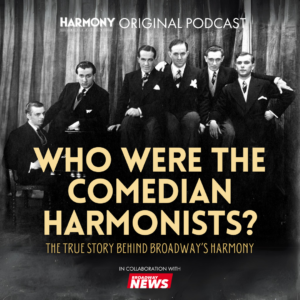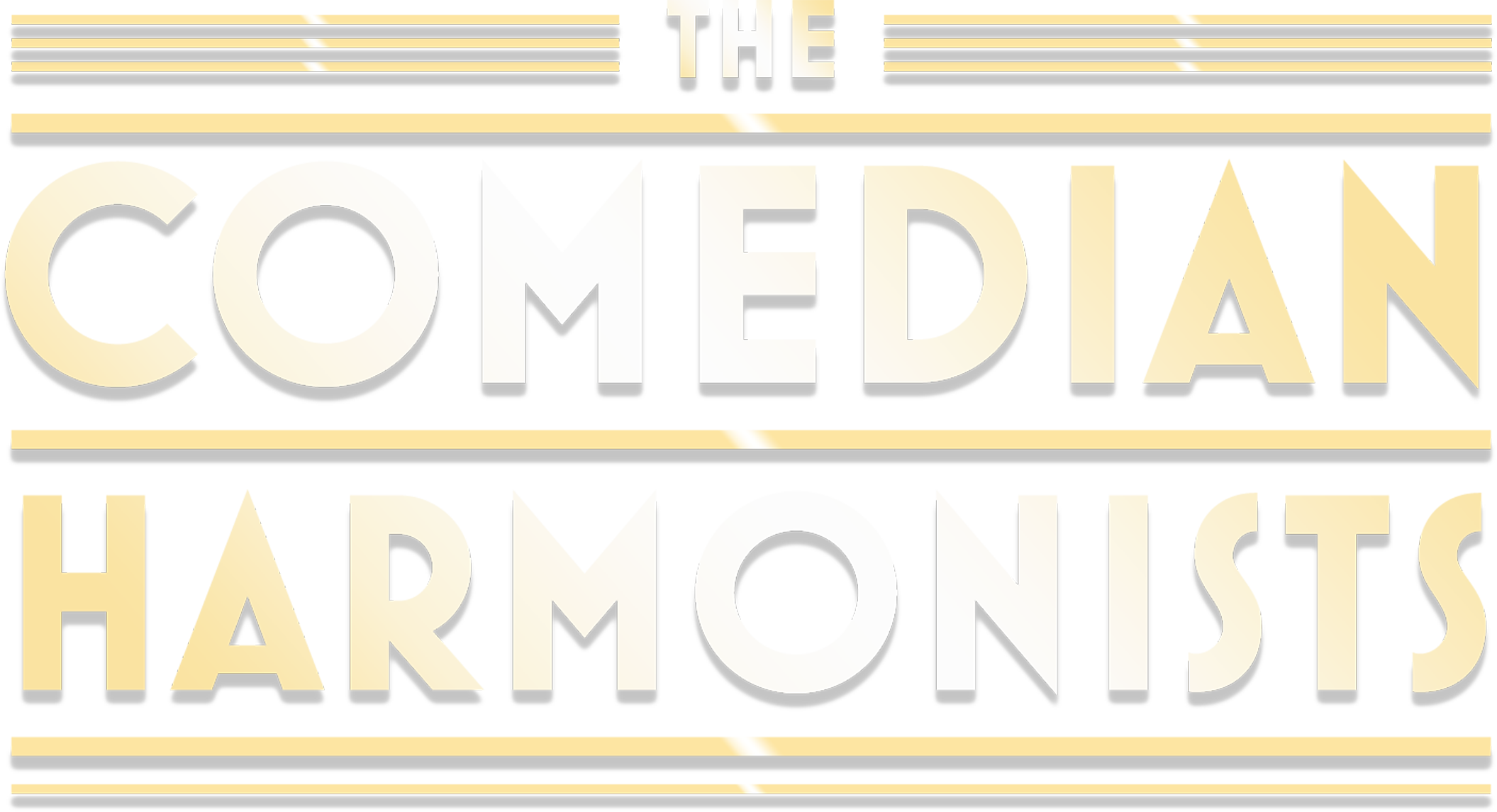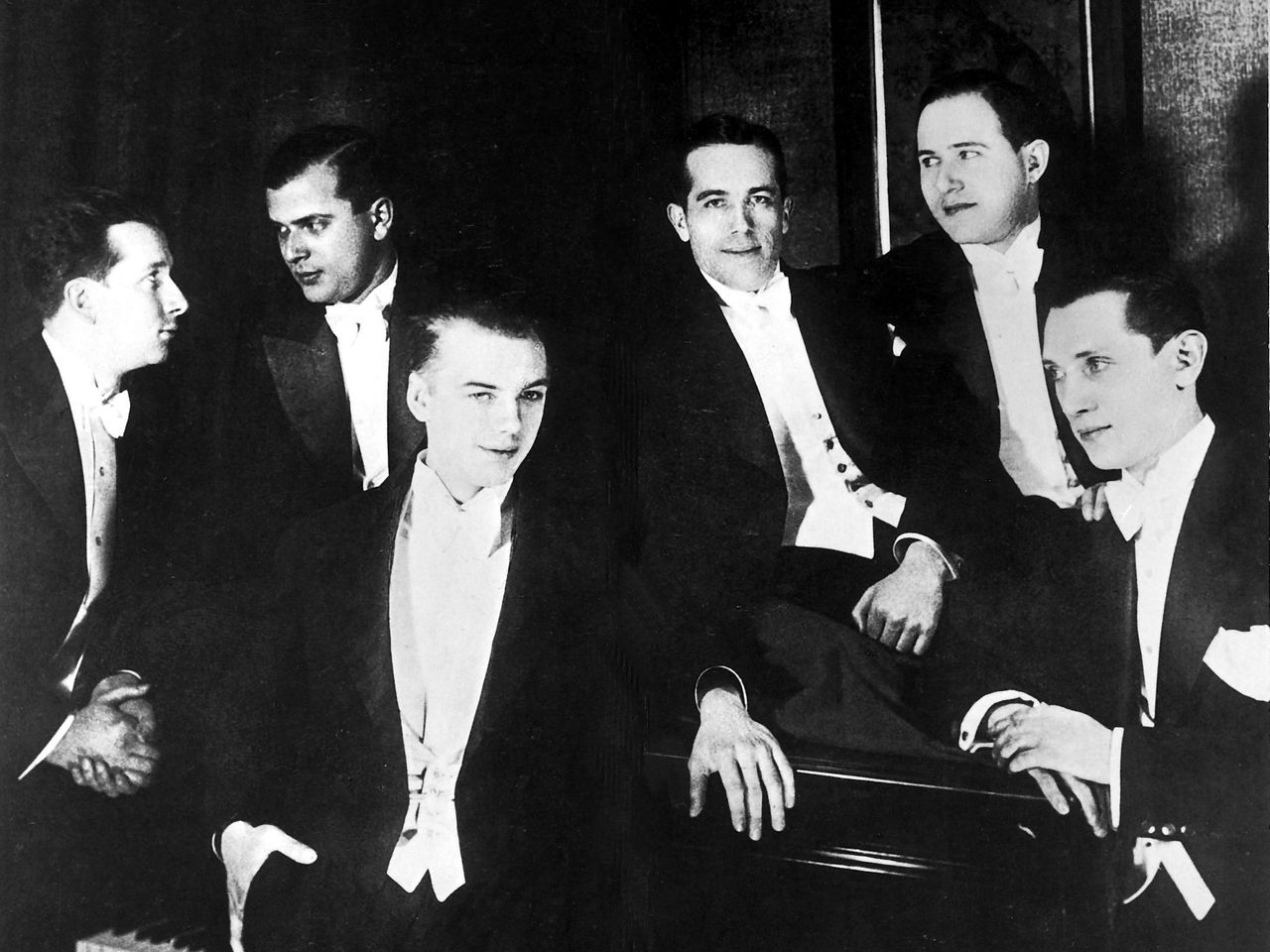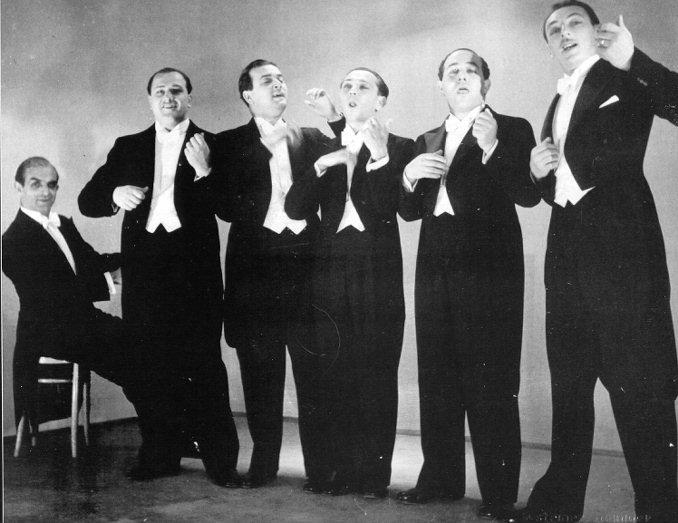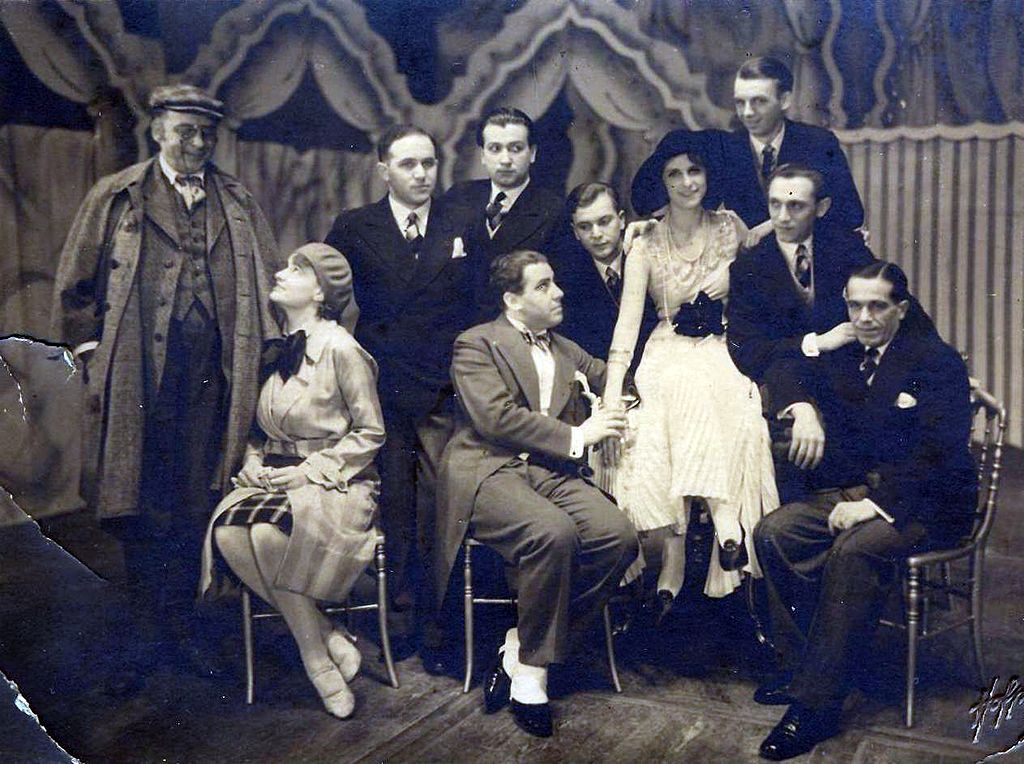The Comedian Harmonists were an internationally famous, German ensemble “boy band” that performed between 1928 and 1934 as one of the most successful musical groups before World War II.
When the National Socialists seized power, the group encountered initial resistance, including abusive criticism, anti-Semitic accusations, and finally open hostilities and the first bans on performing, including on radio and film. According to the new legislation, only artists who were members of the Reich Chamber of Culture were allowed to perform in Germany – but Jews were forbidden from doing so. The attempt to exclusively deny engagements outside of Germany throughout 1934 did not improve the situation.
The complete Broadway cast includes Chip Zien as Rabbi, Sierra Boggess as Mary, Julie Benko as Ruth, Sean Bell, Danny Kornfeld, Zal Owen, Eric Peters, Blake Roman, and Steven Telsey as the Comedian Harmonists, Allison Semmes as Josephine Baker, Andrew O’Shanick as Standartenfϋhrer, Zak Edwards, Dan Hoy, Bruce Landry, Rhonni Rose Mantilla, Daniel Z. Miller, Benjamin H. Moore, Matthew Mucha, Constantine Pappas, Kayleen Seidl, Kyla Stone, Bronwyn Tarboton, Kate Wesler, Stuart Zagnit, and Lee Zarrett.
To learn more about Harmony: A New Musical, click here.
Timeline
December 18, 1927
Harry Frommermann placed an ad in the Berliner Lokalanzeiger newspaper that read: “ Rare opportunity. Tenor, bass (professional singer not over 25), very musical, nice sounding voice, wanted for one-of-a-kind ensemble. Kindly give times available.”
December 29, 1927
About 70 men auditioned for Harry’s ensemble, inside his attic apartment
Robert Biberti was chosen to join the group, and he suggested his colleagues Ari Leschnikoff and Roman Cycowski
Erich Collin and Erwin Bootz joined later
January 1928
The group started rehearsing together
They auditioned for the Berlin Scala Vaudeville Hall, to no success
Summer 1928
Their agent, Bruno Levy, secured them an audition with Erik Charell, a Berlin Vaudeville baron, who hired them for 120 Reichsmarks per evening
August 1928
First recordings for Odeon and Electrola
